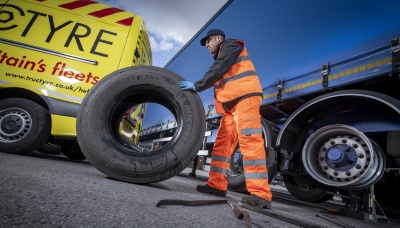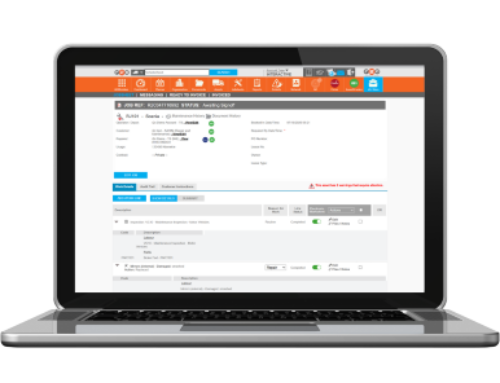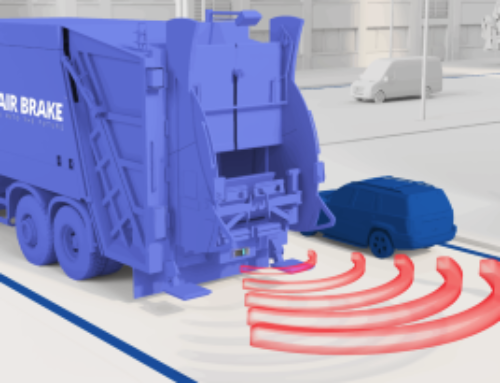De-risking the fleet through vehicle inspections
 Keeping compliant and maximising vehicles’ operational performance is a key benefit of regular vehicle inspections and testing, according to Iain Hayes, operational director at Tructyre
Keeping compliant and maximising vehicles’ operational performance is a key benefit of regular vehicle inspections and testing, according to Iain Hayes, operational director at Tructyre
Anybody responsible for operating, maintaining or providing HGVs is required to make regular, reasonable checks to ensure their vehicles are roadworthy.
If a vehicle is pulled over, or at any other time discovered to be unfit for use, or if adequate checks have not been completed and recorded, then the driver, transport manager and/or fleet manager may face legal consequences.
Tyres wear over time and can be prone to damage, needing replacement sooner than any other part of a vehicle, so regular tyre checks are vital to ensure the safety of the vehicle operator, as well as all other road users.
But just as important is keeping compliant vehicles on the road. We work in an industry where uptime is critical, far more than you would find elsewhere.
If a truck is off the road, it is hugely expensive, and therefore there is an absolute requirement to make sure that tyre servicing is undertaken regularly, and that accurate data is available and reported so that operators are fully appraised on the roadworthiness of their vehicles.
For example, we are meticulous in capturing our customers’ vehicles for inspection to support their duty of care. Having a scheduled, often monthly cycle to visit sites and inspect a fleet’s tyres is very much normal.
We typically capture around 70 per cent of vehicles during these visits which is great peace of mind for the fleet manager.
By performing these inspections we can rectify tyre related issues and prolong tyre life before issues arise and therefore keep the customer’s fleet operating and earning.
And you might even argue that the core benefit, aside from safety, of regular testing for operators is to keep fleets running.
For our Mastercare customers, it is about proactive tyre management, where we endeavour to catch the tyres of trucks, trailers, buses or coaches at the right time to apply life-extending services.
These services increase the mileage that a tyre can yield which reduces the total cost of tyre ownership.
The right tyre management system provides data to help the vehicle operator manage and demonstrate compliance.
Additionally, frequently monitoring the condition of tyres can help minimise the risk of a minor tyre problem from causing a major failure.
With the replacement tyre cost for a 6-wheeled truck often running in to the thousands of pounds, the inspection and tyre life extending services are a small outlay that can have a big effect on delaying the significant investment of tyre replacement as long as safely possible.
Tyre maintenance is not just a nice to have, it is essential for any professional vehicle operator.
Another key aspect of regular inspections is maintaining an absolute focus on safety and having a strong safety culture in the organisation and partners they choose to maintain the tyres on their fleet.
From an operator perspective, that is good because they also have their requirements to be compliant and safe. The other thing that we should encourage is having a strict regime on behaviour for operators and their staff around vehicles, the depots or worksites.
Operators need to think about the working environment and anticipate the safety requirements of any technician. For example, it is vital technicians have a safe space around a vehicle to work with plenty of access and firm ground wherever possible.
Our technicians are of the mindset of thinking about minimising the risk on site and looking after themselves and others. They are also trained to support operators in making sure worksite behaviours are right, and that comes from strong leadership when it comes to safety.
They can offer guidance on how operators and company managers motivate or engage with staff on site when it comes to safety and applying it in practice.
For Tructyre, de-risking the fleet, whether the fleet is operating trucks and trailers or buses and coaches, the core risks are similar and well established – safety and economic. Two sides of the same coin.












